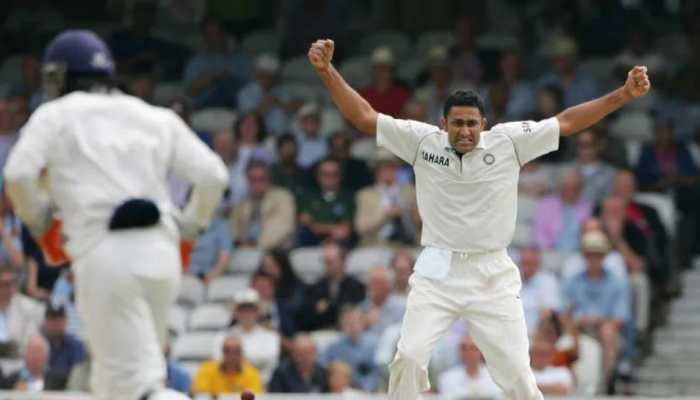Ready for soaring temperatures? Here are sure-shot ways to stay safe during a heatwave
The health impacts of heat waves typically involve dehydration, heat cramps, heat exhaustion and/or heat stroke.
Trending Photos
) (Representational image)
(Representational image) New Delhi: With the mercury all set to rise in the coming weeks, the chances of a heatwave during the summer months are high.
In this regard, the National Disaster Management Authority (NDMA) had asked all the states to prepare an action plan, in order to minimize the impact on the people particularly those living in the urban areas.
The health impacts of heat waves typically involve dehydration, heat cramps, heat exhaustion and/or heat stroke. You may want to watch out for the signs and symptoms that may follow:
Heat cramps – Ederna (swelling) and syncope (fainting) generally accompanied by fever below 39 degrees Celsius i.e.102 degrees Fahrenheit.
Heat exhaustion – Fatigue, weakness, dizziness, headache, nausea, vomiting, muscle cramps and sweating.
Heat stroke – Body temperatures of 40 degrees Celsius i.e. 104 degrees Fahrenheit or more along with delirium, seizures or coma. This is a potentially fatal condition.
A heatwave can affect anyone, but babies and young children, older adults (over 75 years-old) and people with serious chronic conditions, including heart or breathing problems, are at high risk.
Elderly people are more vulnerable to #heatwave.Elders must keep their outdoor activity brief.Protect elders around you from heatwave.https://t.co/Y3mrmYRNem — NDMA India (@ndmaindia) March 5, 2018
To aid and guide you well so that you can curb the effects of a heatwave, the NDMA has provided various tips that you can follow:
One of the most common symptoms is dehydration. Therefore, the NDMA advises everyone to drink sufficient amount of water, even if you are not thirsty.
To keep yourself well-hydrated, the NDMA has also recommended the consumption of ORS (Oral Rehydration Solution), homemade drinks like lassi, torani (rice water), lemon water, buttermilk, etc.
#Heatwave:Drink sufficient water - even if not thirsty. pic.twitter.com/VHPptI5d6N — NDMA India (@ndmaindia) March 5, 2018
#Heatwave:Use ORS (Oral Rehydration Solution), homemade drinks like lassi, torani (rice water), lemon water, buttermilk, etc. to keep yourself hydrated. pic.twitter.com/U0y1hvz4N5 — NDMA India (@ndmaindia) March 6, 2018
A good diet also helps ward off the symptoms of a heatwave. As per the NDMA, a high-protein diet and stale should be avoided at all costs.
Beverages that should be avoided are alcohol, tea, coffee, and carbonated soft drinks as they dehydrate the body
#Heatwave:Avoid high-protein food and do not eat stale food. pic.twitter.com/igssrqfoEQ — NDMA India (@ndmaindia) March 5, 2018
#Heatwave:Avoid alcohol, tea, coffee and carbonated soft drinks, which dehydrates the body. pic.twitter.com/15y9IdYCdA — NDMA India (@ndmaindia) March 5, 2018
During the summer months, when the heat is at its peak, it is a strict no-no to leave children and pets locked inside parked cars.
#Heatwave:Do not leave children or pets in parked vehicles - as they may get affected by Heat Wave. pic.twitter.com/QvjP1fc3f9 — NDMA India (@ndmaindia) March 6, 2018
It is inadvisable to go outdoors during the peak hours when the sun is the hottest. Therefore, as per NDMA, do not go out into the sun between 12:00 noon and 3:00 pm. Do not roam around barefoot either.
#Heatwave:Avoid going out in the sun, especially between 12.00 noon and 3.00 p.m. pic.twitter.com/tYle1MRDgj — NDMA India (@ndmaindia) March 5, 2018
#Heatwave:Do not go out barefoot. pic.twitter.com/SsIM85hW9O — NDMA India (@ndmaindia) March 5, 2018
The NDMA has advised against cooking during peak hours as well. Instead, air out the kitchen – open all doors and windows to provide adequate ventilation around the kitchen.
#Heatwave:Avoid cooking during peak https://t.co/FsqS6iQYUd doors and windows to ventilate cooking area adequately. pic.twitter.com/XFhmge4kxW — NDMA India (@ndmaindia) March 5, 2018
As far as clothes are concerned, NDMA has covered that aspect too – wear loose-fitting, light-coloured clothes made of an airy material like cotton.
Cover your head at all times – use a cloth or a hat – or use an umbrella when stepping out.
#Heatwave:Wear lightweight, light-coloured, loose, cotton clothes. pic.twitter.com/41f2qGuTYU — NDMA India (@ndmaindia) March 6, 2018
#Heatwave:Cover your head: Use a cloth, hat or umbrella pic.twitter.com/t83fkOLYwO — NDMA India (@ndmaindia) March 6, 2018
#Heatwave:Cover your head: Use a cloth, hat or umbrella. pic.twitter.com/ECqsWxmTEN — NDMA India (@ndmaindia) March 7, 2018
Keep your home cool during the daytime – use shutters, curtains or sunshades. At night, open the windows and try to remain on lower floors.
#Heatwave:Keep your home cool, use curtains, shutters or sunshade and open windows at night.Try to remain on lower floors. pic.twitter.com/HN8SajmJR4 — NDMA India (@ndmaindia) March 7, 2018
Below are a few other tips and tricks you can follow to avoid the effects of a heatwave:
- Eat fruits and vegetables such as watermelon, cucumber, lettuce, celery, and radishes, which are all made up of over 95% water.
- Ensure that foods which require refrigeration are properly stored.
- Apply sunscreen before stepping out.
- Take cool showers and baths, especially if you spent the day outdoors.
- Try minimizing physical activity during the daytime when it is hot.
- Follow your doctor's advice if you have any medical conditions.
- Keep a track on the weather forecast.
Stay informed on all the latest news, real-time breaking news updates, and follow all the important headlines in india news and world News on Zee News.
Live Tv







)
)
)
)
)
)
)
)
)
)
